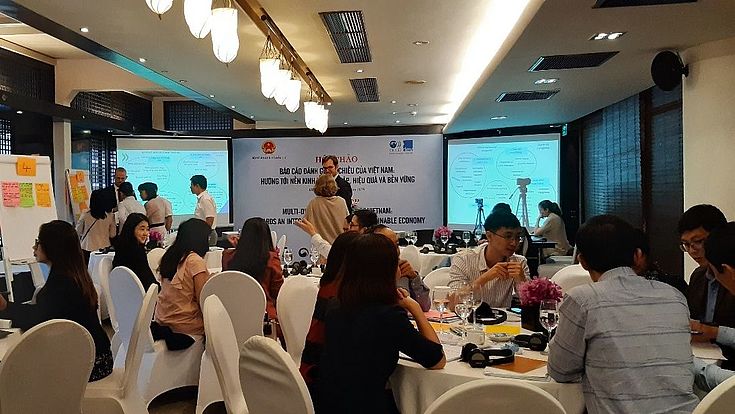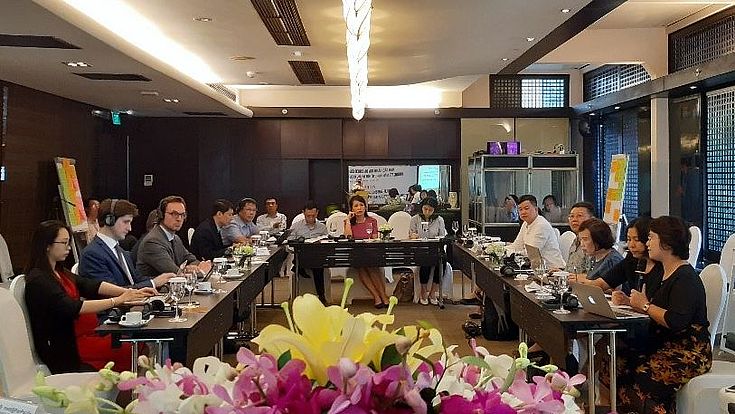Multi-Dimensional Review of Viet Nam over three days
OECD Workshop on creating an integrated, efficient and sustainable economy
Group discussion about the key problems and challenges in relation to air and water pollution
HSF
High representatives of OECD, the Ministry of Foreign Affairs (MOFA), the Ministry of Planning and Investment (MPI) as well as members of the 2021-2030 Socio-Economic Development Strategy Drafting Team of the Sub-Committee for Socio-Economic Affairs came together in Hanoi to discuss Vietnam’s development priorities for the next 10 years.
Each day of the workshop was dedicated to another topic in relation to the Multi-dimensional Country Report. On the first day of the workshop the participants have dealt with the topic of building high-value linkages between the private sector and foreign development investments (FDIs). In addition, it is important to attract FDI that offer economic benefits and opportunities to improve social and environmental costs. During the groupwork the participants elaborated that one problem is, that domestic enterprise products don´t yet meet the requirements of the FDI and that products made in Vietnam also do not meet international requirements.
On the second day, concrete steps towards a network of institutions were taken to build up skills and innovation. Results of the MDRC have shown that the educational attainment has grown and that the enrolment in tertiary education rises, especially in masters and doctoral degree programs. The skills, mainly from a tertiary education, are important for an integrated, efficient und sustainable economy. A higher education can ensure that workers and entrepreneurs have the right skills to fulfill needed requirements for national and international labour markets.
Technical meeting with the Drafting Team and MPI
HSF
Therefore, Dr. Ruaidhri Neavyn, Policy Advisor to the Higher Education Authority in Ireland gave an insight of how the tertiary education is structured in Ireland. As Ireland has the fastest growing economy and the highest attendance of tertiary education in the European Union, he shared three areas of recommendations for Vietnam:
1. Enhance collaboration in tertiary education to strengthen skills development and innovation
2. Support teachers to adopt the knowledge and skills that students need to succeed in their future jobs
3. Build a strong information system to support evidence-based policy making and to guide student choice
The third day dealt with tackling air and water pollution and discussed the obstacles to an effective legislation. Vietnam is a growing economy with a high toll on the environment in terms of pollution. The worsening environmental conditions have already affected the quality of life and generates annual costs up to eight percent of Vietnams GDP. Therefore, it is important to strengthen the existing network of air quality monitoring stations in critical areas and to expand the analysis of poor air quality impacts on health issues. In terms of the water pollution it is important to promote an effective and sustainable wastewater treatment which needs a mobilization of investments in the domestic wastewater treatment capacity and network connections in urban areas.
Fruitful discussions were held based on presentations from experts of several departments and industries to identify and point out the main key problems and challenges within the three cross-cutting development targets.


